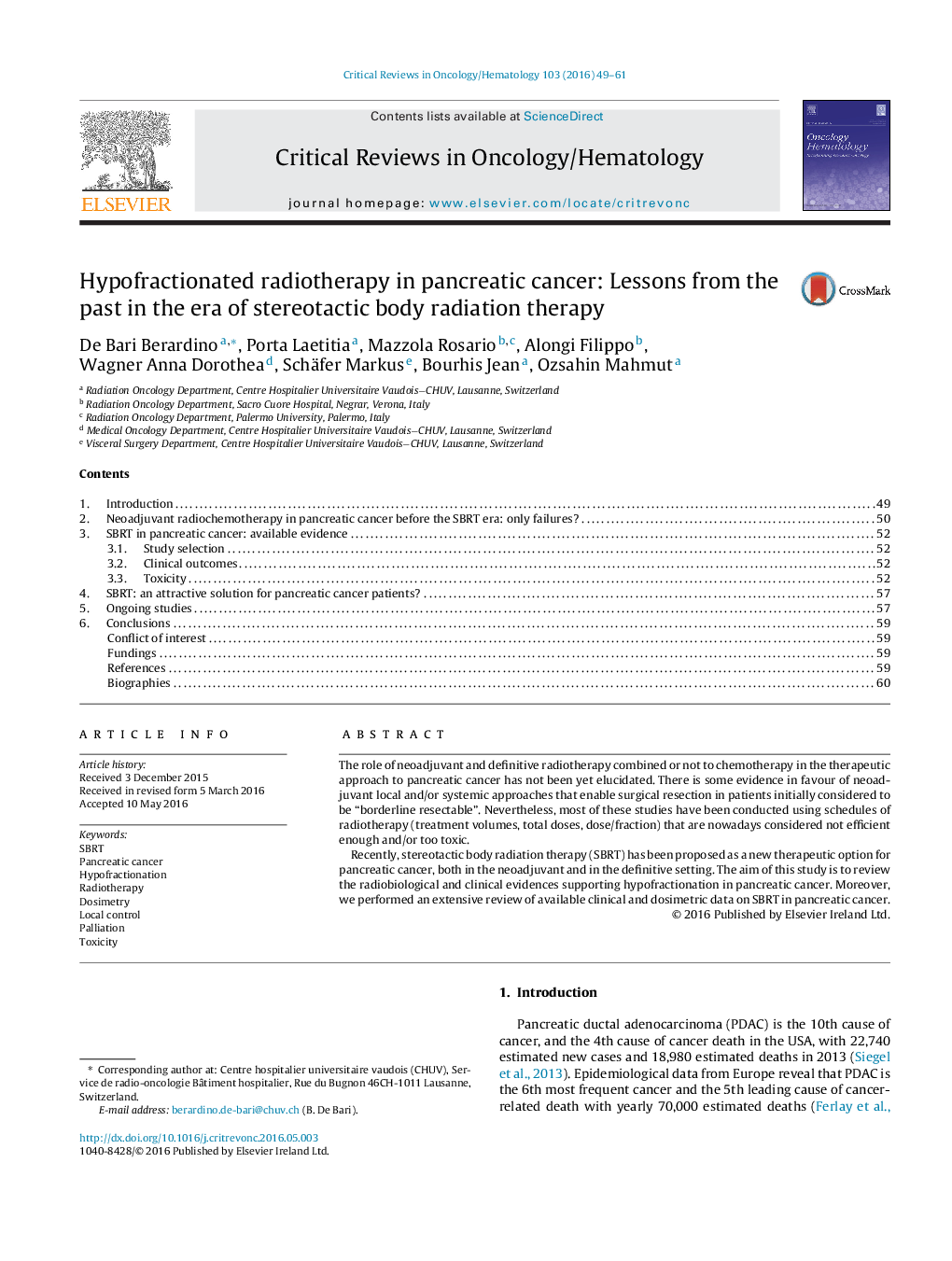| Article ID | Journal | Published Year | Pages | File Type |
|---|---|---|---|---|
| 6113368 | Critical Reviews in Oncology/Hematology | 2016 | 13 Pages |
â¢SBRT as emerging practice has been shown to be a feasible option in the treatment of pancreatic cancer in properly selected patients. Nevertheless, no randomized trials comparing SBRT with conventional RT in terms of pain and tumor control are available. Moreover, and there is still no consensus for the optimal treatment schedule. Preliminary data indicate local control rates exceeding those obtained with conventional RT.â¢Form a radiobiological point of view, SBRT has a particular interest in the treatment of pancreatic cancer, as it could increase the dose at the tumor level without increasing the dose to the surrounding organ at risk. Moreover, the shorter treatment time typical of SBRT could allow the delivery of the chemotherapy without delaying it, thus potentially ensuring the treatment of the local and of the metastatic disease.â¢Up to now, only retrospective and small prospective phase I-II studies exists. Clinical data in terms of efficacy and toxicity are interesting, and are summarized in this review. We also summarized the most important data which could be obtained from the available articles in terms of volume definition and dosimetric costraints.â¢In summary although only retrospective and some phase I-II studies are available, SBRT seems to be a promising technique for the treatment of pancreatic cancer. In particular, it should be probably considered as a standard approach in some particular and well selected clinical situations.
The role of neoadjuvant and definitive radiotherapy combined or not to chemotherapy in the therapeutic approach to pancreatic cancer has not been yet elucidated. There is some evidence in favour of neoadjuvant local and/or systemic approaches that enable surgical resection in patients initially considered to be “borderline resectable”. Nevertheless, most of these studies have been conducted using schedules of radiotherapy (treatment volumes, total doses, dose/fraction) that are nowadays considered not efficient enough and/or too toxic.Recently, stereotactic body radiation therapy (SBRT) has been proposed as a new therapeutic option for pancreatic cancer, both in the neoadjuvant and in the definitive setting. The aim of this study is to review the radiobiological and clinical evidences supporting hypofractionation in pancreatic cancer. Moreover, we performed an extensive review of available clinical and dosimetric data on SBRT in pancreatic cancer.
